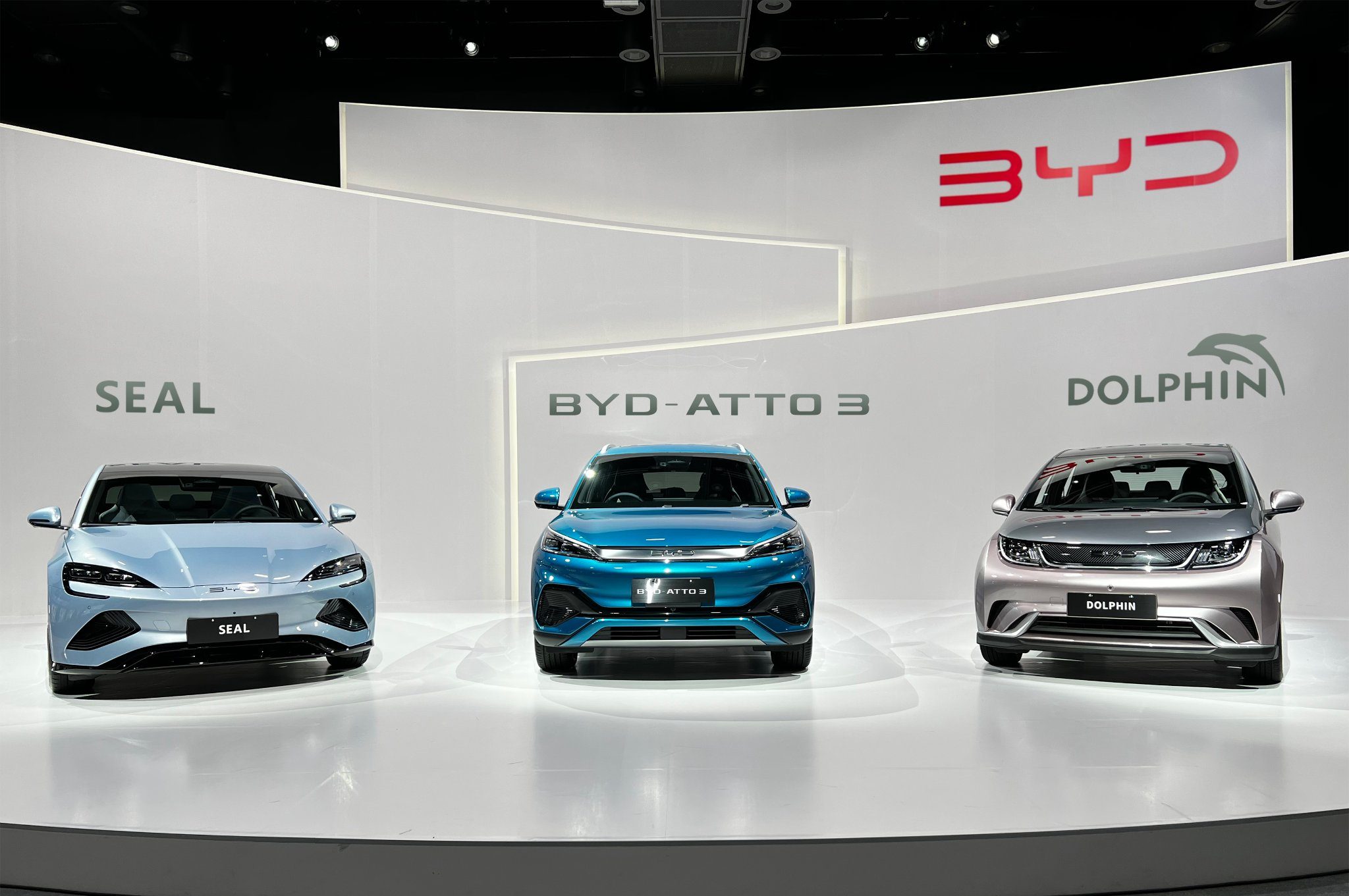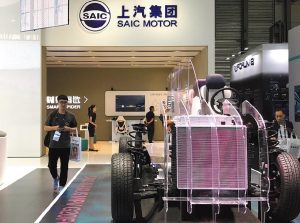
The European Commission is to investigate Chinese car manufacturers as part of a probe into whether to impose punitive tariffs to protect European electric vehicle (EV) makers. EU experts plan to visit Chinese manufacturers BYD, Geely, and SAIC, reported Reuters. As Hungary is to welcome their second BYD manufacturing facility in Szeged in the coming future, such measures could influence the viability of the much publicized mega-investment.
The year-long probe will look into the effects of state-subsidies that the Chinese government offers to its car manufacturers, namely how it influences the European EV market when local manufacturers find it increasingly difficult to compete with cheaper Asian exports. However, any decision to slap tariffs on import cars could open the gates to a trade war, as China is already labeling the European Commission’s (EC) efforts “protectionist.”
So far, only the manufacturing giant Geely had responded to the initiative as far back as October 2023, stating that the company followed all laws and supported fair market competition globally, reported Reuters.

Photo: Twitter Enterprising China
In 2023, the Chinese EV imports’ share in the EU had reached a relatively low eight percent, but this could reportedly rise to double that amount by 2025. The products imported are increasingly competitive with the offerings of large European legacy car brands, such as BMW or Renault, yet still manage to stay some 20k cheaper on average.
The question is whether European consumers and car manufacturers should rejoice at the news, and welcome a more assertive European Commission that is determined to protect its markets and industry against cheaper, state-subsidized Asian imports. Yet Brussels’ market protection measures are in fact a double-edged sword. While protecting jobs in the car industry could certainly sound imperative as some 13 million people earn their bread through it in the EU alone, the EC will have to find a viable solution to how it wants to achieve this.

Photo: Facebook Geely
Export tariffs and market protection are in fact a state subsidy by other means. Putting customs duties on foreign goods allows local manufacturers to sell their products for a larger profit margin. While it serves European companies and the interests of their employees, as well as protecting vital tax revenues, such measures have their own price that can never be transferred onto the outside parties entirely.
Such an approach has increasingly diminishing results the larger and the economically stronger the sanctioned party is. In China’s case, the stakes could not be higher as European economies and the corporate sector are strongly intertwined with the new Asiatic superpower’s economy. The sanctions against Russia have shown just how difficult and expensive it is to ween the European corporate and energy sector off an even smaller trading partner, and opinions have been voiced, claiming that the war sanctions hurt the EU’s economies and consumers significantly harder than they did their intended target: Russia.
The Chinese GDP for 2023 is forecast to be at around USD 28.8 trillion, while the EU’s will stay firmly under 20 trillion. This is an ominous fact when one considers China’s past willingness to answer tariffs and sanctions with their own. While economies as the U.S.’ were able to absorb such retaliatory measures in the past, the sluggish European economy might struggle to come up on top in a trade dispute with China.
Related article
BYD Strengthens Its Presence with the Opening of New Dealership in Budapest
BYD aims to offer sustainable and innovative electric vehicles to a wide range of customers in Hungary.Continue reading
Signs are that the Chinese government is already working on its own response, as in the beginning of the year they initiated an anti-competitiveness inquiry against alcoholic products imported from France, a country that is very much advocating the anti-EV tariffs. Last year’s limited ban on iPhones also sent ripples down markets, as the Chinese mobile phone market is critical for U.S. manufacturer Apple, that sells over USD 70BN worth of phones in China annually.
Not to mention difficulties stemming from joint ventures between European and Chinese EV manufacturers, such as SAIC with AUDI and Volkswagen, punitive trade tariffs could hurt EU competitiveness and consumer choice, while it will almost certainly have a negative effect on Europe’s ambitious environmental goals too.
European EV manufacturers such as BMW and AUDI are slowly losing market share against their American and Chinese counterparts. Some of them have been caught napping at the early stages of the electric transition, and as VW’s rainbow colored logo indicates below, are still often preoccupied with ideological goals, rather than product development proper.
Market protection measures could further dent their motivation to innovate and offer desirable, technologically advanced models to their European consumers.
Hungary is about to welcome its second manufacturing facility owned by the Chinese car maker BYD. It is difficult to predict how a trade dispute with China would effect the project, but making cars within the EU could create a solution for Chinese companies that would make trade tariffs not only counter-productive, but also ineffective.
In less well-off countries in the EU such as Hungary, consumers are especially sensitive to vehicle purchase prices, therefore, banning the import of more affordable vehicles could turn potential buyers off electric vehicles that are typically 50% more expensive than their combustion engine counterparts. As we reported earlier, last year, 22,651 vehicles were were put on the road in Hungary that were either hybrid or pure electric, making 2023 another record year. At the end of December there were over 86,000 climate-friendly vehicles on Hungary’s roads.
Being limited to expensive European models, as well as imported electric vehicles the prices of which are artificially inflated by customs tariffs, could result in a deceleration of the share of electric vehicles on the road. Although the ecological benefits of EV’s are still a matter of dispute, if the EU’s green targets alone are considered as a measure of environmental progress, then this slowdown could do little favor towards tackling air pollution or other environmental challenges.
Until the European Union adopts a “compete instead of protect” approach to manufacturing, its global competitiveness could suffer further. A quick solution in the shape of trade tariffs could satisfy popular demand from European industries in the short term, but it will also take the pressure off innovators when it perhaps should be applied even more vigorously. Allowing EU companies to produce overpriced and technologically less advanced vehicles will not only hurt consumer choice, but will allow a formation of a corporate and technological environment that could find it increasingly difficult to compete internationally, where the protective bubble tariffs will not apply.
Related article
BYD Aims for 3.6M Annual Car-Sales with New Factory Opening in Szeged
The Chinese press believes it is easily achievable this year, considering new capacities in Szeged joining the production.Continue reading
Featured Image: Facebook/BYD Europe



